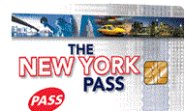Hong Kong Travel FAQ
Home ![]() Hong Kong visa
Hong Kong visa ![]() Hong Kong Travel
Hong Kong Travel
Hong Kong Travel provides some common questions and answers that may concern Hong Kong tourism. This information is necessary before you travel there.
Some important information is not included in this page, but is on this site:
Hong Kong weather. You want to know the weather before you travel.
Here is the Hong Kong visa page. A visa is the document you normally have to have when you travel overseas. As a special administrative region of China, Hong Kong has special visa waiver programs or requirements. You may also want to check out the China visas page if you plan to go to mainland China too.
There are also some interesting pages about Hong Kong, such as Hong Kong Picture Essay. If you want to arm yourself with more information about China in general, we have plenty of that, no matter if it's Chinese traditions, Chinese martial arts, lucky symbols or simple facts about China. Hope this site can be helpful.
Now, the Hong Kong travel FAQ:
- Q: When is the best time to visit Hong Kong?
- Q: Where is the best area to stay?
- Q: Is local transport easily accessible?
- Q: Will I be expected to pay tips?
- Q: Will I be able to use my electrical equipment in Hong Kong?
- Q: Where can I get Internet access in Hong Kong?
- Q: Is Hong Kong safe for visitors?
- Q: Is English widely spoken?
A: Hong Kong is a year-round destination. It enjoys a mild climate from the middle of September to the end of February, while the weather from May to mid-September can be hot and humid. About 80% of Hong Kong's rainfall occurs between May and September, with August usually being the wettest month. For detailed weather information, please visit the Hong Kong Observatory website.
Q: Where is the best area to stay?A: Hong Kong is very compact, so visitors are never too far from shopping areas and major attractions. Getting around is simple, with relatively cheap public transport easily accessible wherever you stay. Most hotels are located close to the harbour in Central, Wan Chai, Causeway Bay and North Point on Hong Kong Island and in Tsim Sha Tsui, Tsim Sha Tsui East and Hung Hom in Kowloon, plus the busy areas of Yau Ma Tei and Mong Kok. There are also a growing number of resort-style hotels in the New Territories that offer relaxing alternatives.
Q: Is local transport easily accessible?A: Hong Kong has an excellent public transport system, with most transportation air-conditioned. Depending on where you are going, you have a choice of MTR, trains, buses, trams, ferries and taxis. The clean and efficient options cover extensive areas of Hong Kong, and have signs in English and Chinese.
Q: Will I be expected to pay tips?A: Most restaurants will levy a 10% service charge but waiters will expect to be given some loose change. Restaurants that don't add a service charge will expect a 10% tip. However, tipping is left to your discretion. Bellboys, porters, restroom attendants and taxi drivers are happy to accept loose change.
Q: Will I be able to use my electrical equipment in Hong Kong?A: The standard electrical voltage in HK is 220 volts AC, 50HZ. Most hotel bathrooms also have outlets for 100 volts, but otherwise you will need a transformer for any appliance or electrical equipment. The majority of electrical outlets in Hong Kong take a three-pronged UK-type plug. You can buy an inexpensive adaptor for your equipment when you arrive in Hong Kong.
Q: Where can I get Internet access in Hong Kong?A: Free Wi-Fi service is available at Hong Kong International Airport. There is also free GovWiFi service is in some government buildings including some public libraries. You can access the Internet for free at many coffee shops in town including Tsim Sha Tsui, Central, Wan Chai and Causeway Bay. The service is also available in some MTR stations and the Hong Kong Trade Development Council’s Business InfoCentre. (Check with the Hotel Concierge for a nearby location.) Most hotels have Broadband Internet access.
Q: Is Hong Kong safe for visitors?A: Yes, Hong Kong is one of the safest areas in the world even at night, when people may walk alone with confidence. To ensure your stay is a pleasant one, always take care of your belongings.
Q: Is English widely spoken?A: Yes, particularly in places frequented by visitors. You should have no problem communicating with people in most hotels, shops, restaurants and even some taxis.
If you have Hong Kong travel question or comment,
please contact us here.
Related Pages:
Home ![]() Hong Kong visa
Hong Kong visa ![]() Hong Kong Travel
Hong Kong Travel

New York Pass With More than 50 Sttractions

Southern California CityPASS saves you 32% for Disneyland, Universal Studios and 3 other attractions





